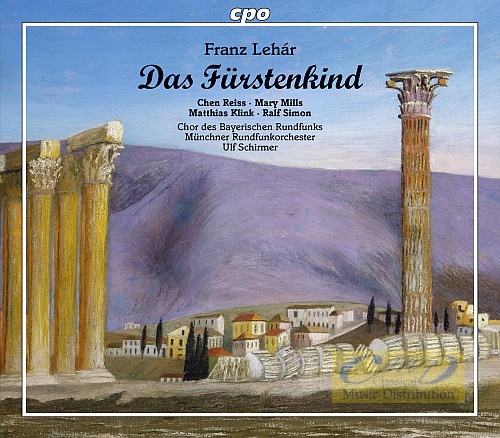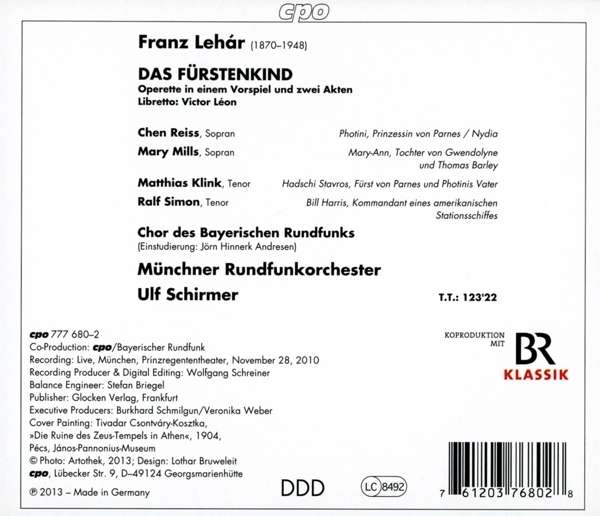
classical music distribution


(Produkt nie został jeszcze oceniony)
kompozytor
Lehar, Franz
tytuł
Lehar: Das Fuerstenkind
wykonawcy
soliści;
Schirmer, Ulf
Schirmer, Ulf
nr katalogowy
CPO 777680
opis
Among those in the know, Das Fürstenkind (The Prince's Child) has always been an insider's tip in Franz Lehár's oeuvre, and the composer himself regarded this robbers' tale from Greece premiered in 1909 as one of his best works. It was also his problem child because it never became a sensational success. The reason may have been that Das Fürstenkind, even more than other Lehár operettas, did too much blurring of the generic boundaries between the opera and the operetta. He had never composed more like the opera in the sense of an elevated singspiel tone. Contemporary critics were also aware of this fact: »Lehár finds natural atmospheres, sets the landscapes into tones, and also in the end does indeed give the operetta what it must have in the way of charming dance pieces gracefully strolling along. He even does an excellent job with the leitmotifs of the music drama.« Moreover, with the aria »Schweig, zagendes Herz« (Hush, timid heart) also known as »Resignation«, Lehár succeeded in formulating his most gripping and noblest musical idea of all.
nośnik
CD
x 2
gatunek
Muzyka klasyczna
producent
CPO
data wydania
24-04-2013
EAN / kod kreskowy
761203768028

(Produkt nie został jeszcze oceniony)
cena 89,00 zł
lubProdukt na zamówienie
Wysyłka ustalana indywidualnie.
Darmowa wysyłka dla zamówień powyżej 300 zł!
Darmowy kurier dla zamówień powyżej 500 zł!
sprawdź koszty wysyłkiProduktu jeszcze nie zrecenzowano, chcesz być pierwszy?
Klienci, którzy kupili ten produkt, kupili również
Pozostałe płyty tego kompozytora
różni kompozytorzy
The Ultimate Operetta Album - wybór arii, duetów i fragm. orkiestrowych z najbardziej znanych wiedeńskich operetek (2 CD)
8.578037-38
Pozostałe płyty tego wykonawcy
Tchaikovsky, Piotr
WYCOFANY Tchaikovsky: The 3 Ballets at the Bolshoi: Sleeping Beauty,The Nutcracker, Swan Lake
BAC 611
Schoenberg, Arnold
Schoenberg: String Trio Op. 45, Four Pieces Op. 27, Three Satires Op. 28, Septet-Suite Op. 29
8.557529
Napisz recenzję dla: Lehar: Das Fuerstenkind
Zapytaj o dostępność produktu
Twoje zapytanie:
Odpowiemy na adres:
Produkt został dodany do koszyka

Lehar, Franz
Lehar: Das Fuerstenkind
1 szt












































